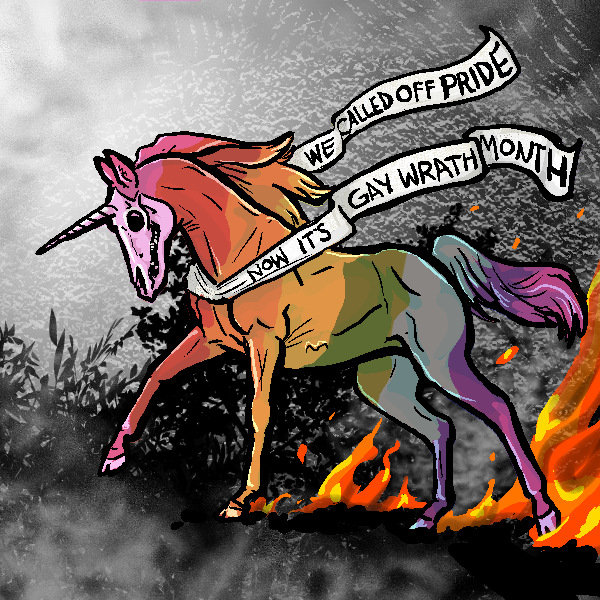My main ones right now that I'm reading at work simultaneously are Capital, Vol II (which I'm about 2/3 through, it's a slog) and Michael Kazin's The Populist Persuasion, which I've almost finished. The latter is an overview (written in the 90s) of numerous "populist" movements that have appeared throughout American history, and both how they are connected and have evolved and diverged. These being: the Jeffersonians, Jacksonians, and Lincoln and how they were channeled by the later Populists; the capital-P Populists themselves; the AFL and Samuel Gompers; the Temperance and Prohibition movements; the Coughlinites; the CIO and industrial unionist New Dealers; 1940s/50s anticommunist red hunters and Joe McCarthy; the white New Left of the 60s and 70s; Wallace and the white working class of the 60s and 70s; the evolution of the Reagan Revolution coalition; and 90s figures such as Pat Buchanan and Ross Perot.
I say "simultaneous" because Capital, Vol II is so tedious and boring that I need a break every 100 pages or so and switch. It's probably going to be this way for Capital, Vol III and the Grundrisse as well, and I have to read them at work because I will ignore them at home as I have for almost three years.
For once I'll post my immediate order I'm going through by backlog. I'm planning to dive into a very large suite of American history books, largely placed in chronological order (Populist Persuasion jumped the line because I was slightly more interested in the subject matter at the moment), interspersed with a couple others as spacers. This might take the better part of this entire year (much of last year was primarily spent binging the four Perlstein tomes and Kotkin's Stalin biographies). Here goes, this is a huge list of like 20-25 books:
- Social Change in America: From the Revolution through the Civil War, by Christopher Clark (Clark is very good, I've read his comprehensive history of Prussia before and it was very good)
- Adam Smith in Beijing: Lineages of the Twenty-First Century, by Giovanni Arrighi (I think a lot of people here are aware of Arrighi, who is a very advanced World-Systems theorist heavily influenced by Marxists, he's extremely good and this is the last of his works I need to read)
- The Roots of Rural Capitalism: Western Massachusetts, 1780-1860, by Christopher Clark
- The American Road to Capitalism, by Charles Post
- Slavery and Freedom: An Interpretation of the Old South, by James Oakes (I've also read James Oakes' The Ruling Race which is a key niche book on understanding how class and social mobility in the South was inextricably bound up with the institution of slavery)
- All ten volumes of Marxist historian Philip Foner's History of the Labor Movement in the United States, which chronicles from colonial times to the communist TUUL of the late 1920s (these are interspersed throughout chonologically)
- The Incorporation of America: Culture and Society in the Gilded Age, by Alan Trachtenberg
- The Republic For Which It Stands: The United States During Reconstruction and the Gilded Age, 1865-1896, by Richard White (I unfortunately couldn't join Matt in his read-along. I've also read White's Railroaded, where funny enough the guy who is the ancestral founder of the company that employs me is a central character)
- The Monied Metropolis: New York City and the Consolidation of the American Bourgeoisie, 1850-1896, by Sven Beckert
- For Jobs and Freedom: Race and Labor in America since 1865, by Robert H Zieger
- The Great Crash 1929, by John Kenneth Galbraith
- The Emergence of the New South, 1913-1946, by George B Tindall (I've read the immediate predecessor in this series by C Vann Woodward, very interesting)
- The CIO Challenge to the AFL, by Walter Galenson
- Invisible Hands: The Businessmen's Crusade Against the New Deal, by Kim Phillips-Fein
- Stayin' Alive: The 1970s and the Last Days of the Working Class, by Jefferson Cowie
This is only a significant chunk of my existing backlog, which also includes works of political economy, Marxist theory, feminist theory, Chinese history, Cuban history, histories of the American national security state, European history, and fiction. The stacks on my shrinking number of shelves are becoming comical, I'm accumulating more means of self-education faster than I can consume them.
Check out The Dispossessed after if you like. More adult themed and contains element of something similar to socialism, communism, anarchism and maybe capitalism.
Nice, read that series many years ago. It was pretty intense for a middle schooler.
just finished trans liberation the other day, started reading Settlers today.
Also hopefully gonna start reading blackshirts and red with my partner soon. I read it about a year ago but I'd like to brush up on it and I think it would make the process more enjoyable for my partner who generally only reads fiction outside classes.
Bring the War Home by Kathleen Belew currently. It covers the radicalization of soldiers in the Vietnam war and how that contributed to the militarization of the white power movement in the US.
Yeah it's pretty straight forward. Vietnam taught these people to be militantly anti-communist and weaponized preexisting racist tendencies to dehumanize their enemies, it starts off there and then describes how that was brought home and grew on its own while being allowed to flourish as a defense mechanism against leftist movements.
Georgi Dimitrov's The Fascist Offensive and the Tasks of the Communist International in the Struggle of the Working Class against Fascism.
Just finished Trans Liberation by Leslie Feinberg and Behave by Robert Sapolsky.
Currently reading:
How to be an Anti-Racist by Ibram X Kendi
Machine Learning for Dummies
Cringeworthy: A Theory of Awkwardness by Melissa Dahl
More Heat than Light: Economics as Social Physics, Physics as Nature's Economics by Philip Mirowski. Seems to be, among other things, about how many ideas in neoclassical economics came from a desire to make economics more like physics.
Understanding Human Sexuality - A 12-year-old textbook, so some of the language it uses when talking about gender is a bit dated.
Upcoming:
The Inconvenient Indian by Thomas King
So You Want To Talk About Race by Ijeomo Oluo
Switching between books a lot rn.
- The Old Drift by Namwali Serpell - Family epic set in Zambia, with a touch of sci-fi and magical realism
- Taaqtumi - Collection of horror stories by First Nations authors
- Voices of the Lost by Hoda Barakat - A book consisting of six letters, by a Lebanese author (I'm trying to avoid reading US+UK authors this year lol, as you can see)
- Women, Race, and Class by Angela Davis
"classics" shouldn't be a fucking field.
godspeed to our comrades in the fight against romanism
Marx For Beginners from the chapo theory archive. Getting myself psyched up for tackling something more dense.
Wasn't expecting a comic book style.
reading Gender, Race & Class by Comrade Angela Davis still. Good stuff.
Currently reading Fanshen: A Documentary of Revolution In a Chinese Village
I was thinking of picking up How Europe Underdeveloped Africa on audio. Do you think it's possible to grasp it via audio or is it the kind of thing you need to take notes and flip back and forth to read?
I've mostly only been able to read casually without extensive note taking and I found HEUA to be pretty easy to follow. Rodney jumps around to different locations and cultures a lot, so that might be something that is tough to translate into audio, but in general I think it wouldn't be a horrible fit for an audiobook :)
N.K. Jemisin is so good. Finally reading The Fifth Season and really loving it.
IDK if it's just nostalgia for different systems, but she kind of reminds me of Melanie Rawn to a certain degree. So after I finish this (and the 4 other library book I've got at the moment) I plan to go back and reread the Exiles books and see if I still think they are similar.





